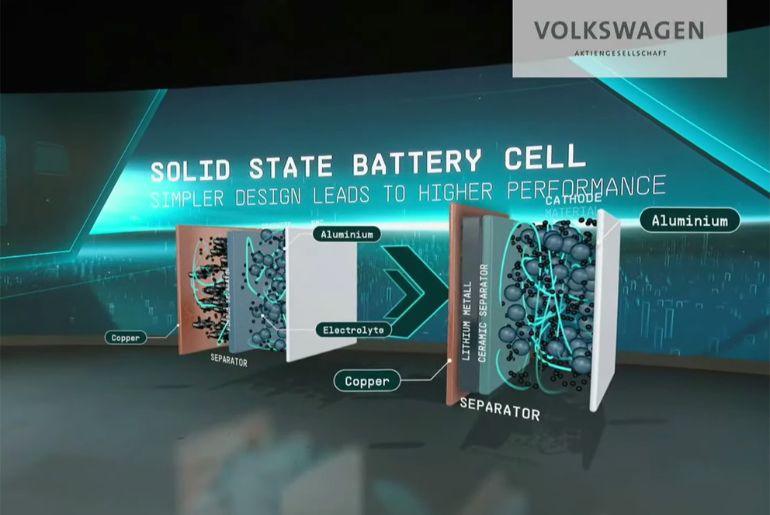In a bold step towards revolutionising electric mobility, German automaker Volkswagen has significantly expanded its investment in solid-state battery technology through its battery subsidiary, PowerCo SE. The move comes as part of a newly finalised multi-year licensing agreement with U.S.-based startup QuantumScape, signalling the carmaker’s intensified commitment to next-generation EV battery development.
The agreement enables PowerCo to commercialise QuantumScape’s solid-state lithium-metal battery technology, initially targeting a production capacity of 40 gigawatt-hours (GWh) annually—enough to power roughly 500,000 to 1 million electric vehicles per year. Subject to successful scaling, the output could double to 80 GWh in future phases.
Solid-state batteries represent a substantial leap forward compared to traditional lithium-ion cells. Featuring a lithium-metal anode and ceramic separator, QuantumScape’s design offers significantly higher energy density, faster charging, and enhanced safety. Volkswagen’s internal tests reportedly showed the cells retaining 95% of their capacity after 1,000 charging cycles, equivalent to about 500,000 kilometres of use—well beyond the industry norm.
“This is a pivotal moment for Volkswagen’s electrification strategy,” said a PowerCo spokesperson. “With solid-state batteries, we’re investing not just in performance, but in a safer, longer-lasting and more sustainable EV future.”
The partnership builds on years of joint development between Volkswagen and QuantumScape. The two companies originally launched a joint venture in 2018, but the new licensing deal supersedes it, allowing PowerCo to lead manufacturing scale-up independently. The production ramp-up will take place at PowerCo’s upcoming gigafactories in Germany, Spain, and Canada, furthering VW’s vertical integration in EV production.
QuantumScape will continue developing the underlying technology and support PowerCo with expertise during the industrialisation phase. The companies envision mass production of solid-state cells beginning as early as 2026, pending final validation and production readiness.
Solid-state battery adoption is widely seen as the next frontier in EV performance, offering significant weight reduction, greater range, and shorter charging times—key challenges currently limiting broader consumer adoption.
With global EV demand rising and battery supply chains under increasing scrutiny, Volkswagen’s intensified focus on in-house battery production marks a strategic shift aimed at reducing dependency on external suppliers while positioning itself as a leader in energy technology innovation.
The announcement follows similar moves by other major automakers seeking to accelerate solid-state R&D, but Volkswagen’s investment stands out for its scale, maturity, and strategic alignment with global manufacturing plans.
As the auto industry races toward a zero-emissions future, Volkswagen’s bet on solid-state batteries may prove pivotal in defining the next generation of electric vehicles.

